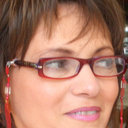Melatonin and abeta, macular degeneration and alzheimers disease: same disease, different outcomes?
الكلمات الدالة
نبذة مختصرة
Aging is the common denominator and the highest risk factor for macular degeneration and Alzheimers Disease (AD). Important pathological hallmarks common to both diseases are the presence of amyloid β (Aβ) in the senile plaques of the AD brain and in the drusen of age-related macular degeneration (AMD) patients, oxidative stress, and apoptotic cell death. Data suggest that a common pathogenic mechanism might exist between AMD and AD. Brain and eye depend on redox electrons from pyridinic and flavinic nucleotides to produce ATP, and reactive oxygen intermediates (ROI). Disorganization of mitochondrial structure and decline in mitochondrial oxidative phosphorylation (OXPHOS) functioning, as well as hypometabolism and alterations in mitochondrial DNA are aging features. Because ROI damage and mitochondrial dysregulation are prominent in AMD and AD and their relationship to the redox state is unclear we addressed a new hypothesis according to which the interaction of melatonin vs Aβ are intertwined to balance of the intra- and extra-mitochondrial energy production. This balance would be impaired by the ageing process and environmental/genetic factors, ultimately leading to AD and /or AMD.


